Speak to a Africa expert today
and start planning your tailor-made holiday

Alistair
Africa Expert
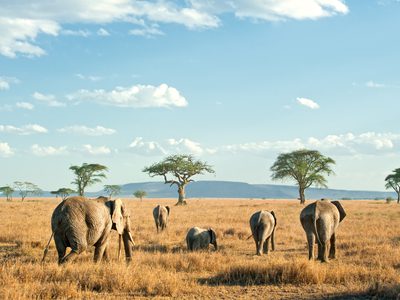
Planning your first safari holiday is an exciting time, but it can also be overwhelming with a huge range of countries and types of safari to choose from.
The below talks you through some of the most popular safari destinations and the differences between these, but we’d also highly recommend that you talk to one of our safari experts who can help advise on where you would most enjoy and will help to create your dream safari.
Where and when to go on safari, is one of the most common questions we get asked – and there is no right answer! The good news is, there are fantastic safari options available throughout the year, but depending on when you want to travel, some countries will be better suited than others. This is something our specialists can help you with when planning.
In terms of where to go, it depends on what you are hoping to see, the type of experience you want and what else you would like to do.
Kenya is arguably the home of safari, known for the world famous Masai Mara which it offers exceptional game viewing, it is perfect for those looking for an authentic ‘Out of Africa’ style safari with vast plains and tented accommodation. Safari operations tend to be very professional run with exceptional customer service making it easy to relax.
Many of the parks are famous for the number of big cats which makes for exciting game viewing, you can tick off the big five, and depending on the time of year you can also see the Great Migration in the Masai Mara (usually September).
Most first-time visitors are naturally keen to visit the famous Masai Mara for safari, but it also easy to combine this with another area such as Samburu or Laikipia which allows you to experience different landscapes, ensures you see a wide range of animals and also allows you to try walking or riding safaris as well as those in a 4x4.
One thing to be aware of is that the Masai Mara national park can become very busy in peak season with lots of cars, and you are not allowed off the track. It is therefore worth considering spending some of your time in a conservancy which is a private safari area – these are more expensive, but less busy and also allow your guide the freedom to go off-roading to find you the best game.
Another big draw of a Kenyan safari is the chance to meet and learn about the Masai Tribes who inhabit southern Kenya and are easily recognizable in their distinctive red dress. Many of these are now highly knowledgeable safari guides ensuring you get an authentic safari experience and allowing you to learn about their culture first-hand.
Kenya has a wide range of camps available giving you the choice from traditional tented accommodation up to luxury lodges with pools and spas. You can even sleep under the stars fly camping.
Another big plus is that Kenya has a fantastic coastline, meaning it is quick and easy to combine your safari with a few days relaxing on the beach, without loosing lots of your holiday time travelling. Of course, if you are looking for something more active, climbing Mount Kenya is a wonderful and exhilarating experience.
Generally, Kenya is more expensive than South Africa, but cheaper than Botswana, and is fantastic choice for those looking for an authentic and diverse safari experience.
When to go: Kenya is an all year safari destination, but it is especially good Jan-March after the rains when it is lush and green, and you have the opportunity to see animals being born in calving season or July-September which is when the great migration happens.
Pros: authentic ‘Out of Africa’ safari experience, world-famous Masai Mara, cultural tribes, big 5 and lots of cats, plenty of good tented accommodation as well as good lodges, possibility to do walking, riding, and hot air balloon safaris.
Cons: Masai Mara can get crowded in peak season meaning you may have to queue to see an animal or be with lots of other vehicles. This can be avoided by staying in a private conservancy in the Mara, but these are generally more expensive.
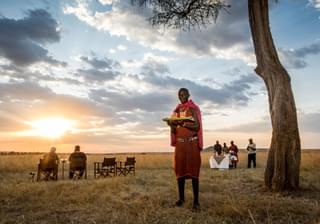
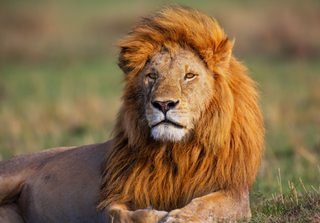
South Africa is a brilliant first time safari destination as it allows you to combine a safari with a whole host of other activities, meaning that you can dip you toe in to see if you enjoy the safari experience (we’re pretty confident you will), but you can also see Cape Town, the winelands, whale watching, the Zulu battlefields, Victoria Falls or Mozambique’s beaches.
The best place to first experience safari in South Africa is Kruger National Park which includes Sabi-Sands. Kruger offers exemplary game viewing including a chance to see the Big Five. Kruger National Park also has some malaria free areas in the eastern cape which makes it popular with families who are well catered for.
Although Kruger National Park does offer the ability to self-drive, we’d recommend having a guide for you first experience as this means that you can focus on looking out for animals and you also have someone who can teach you about them and their behaviour. A guide will also know the best places to find animals if there is something specific you are hoping to see.
South Africa offers great value for money making it an attractive destination for many; often the quality of accommodation, food and drink you get here will be much better than elsewhere in Africa for the price.
Whilst there are many positives about safari in South Africa and it would be our top choice if you were looking for only a few days, one potential negative of it as a safari destination, is some people do not feel you get as authentic experience here as elsewhere in Africa.
When to go: The best time to visit the Kruger National Park is from May to September which are the dry winter months. At this time of year, the bush thins out making animals easier to spot and animals can also be found congregating around watering holes and rivers.
Pros: Allows you to do a short safari, big five, combine with other experiences, good value, brilliant accommodation and food, family friendly.
Cons: Potentially less authentic safari experience.
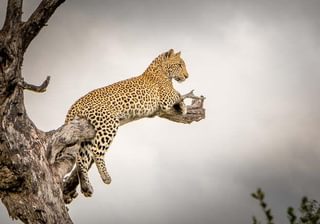
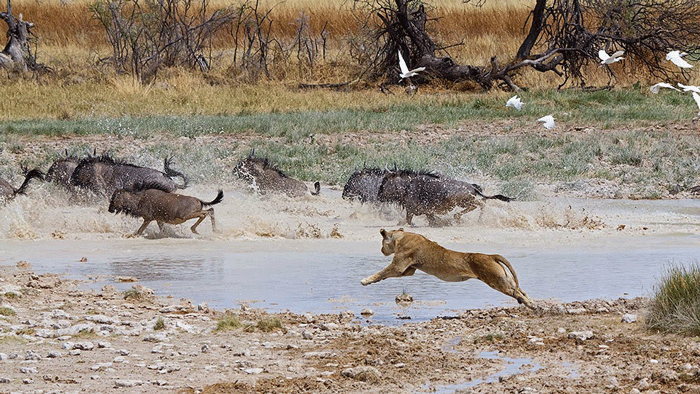
Tanzania is home to the world-renowned plains of the Serengeti which host immense game concentration and of course the great migration which is often referred to as the greatest wildlife show on earth – it’s no wonder Tanzania is likely to be on any first-time safari goers hit list.
The Serengeti plains offer everything of the Masai Mara in Kenya but are ten times the size so even more vast and with an even greater variety of habitat. It also means that visitors are often sparser than in the Mara providing a more secluded game viewing experience, especially as with Kenya if you are in a private conservancy.
Tanzania also gives you the chance to visit the vast Ngorongoro Crater which offers exceptional and dramatic scenery, as well as exceptional game viewing. The wildlife on the crater floor is as impressive as the views from the rim itself, with an unparalleled concentration of animals including one of the densest predator populations in Africa. If you are visiting during peak season, the Ngorongoro Crater can get very busy which even with arriving early can be unavailable.
Tanzania is of course also home to Kilimanjaro, the tallest mountain in Africa and known as the ‘roof of Africa’. Climbing this is a bucket-list feat for many and a hugely rewarding experience, although you will need to allow just over a week for this activity so it is often combined with a then shorter safari.
Another plus of Tanzania, is its fantastic coastline and how easily it can be combined with Zanzibarwhich is a short flight away offering pristine white beaches and crystal clear waters for those wanting to relax on the beach after safari.
When to go: July – September is the best time to visit if you are hoping to see the Great Migration. It is also dry during this time with plenty of game.
Pros: Unbeatable game viewing, great migration, excellent beach options.
Cons: Crowds during peak times.
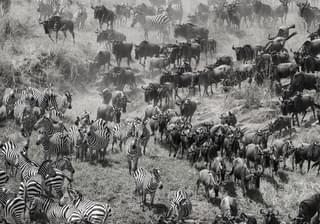
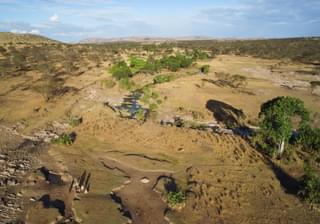
If you want an exclusive game-viewing experience and are looking for pure safari then Botswana should be top of your list. Whilst it is famed for being one of the most expensive countries for safari, this is because it has a low number of visitors, high value approach to conservation; it is more expensive than other destinations, but you are guaranteed excelled game viewing and high standards of accommodation.
Botswana is of course famed for the number of elephants it has which are fascinating to watch, but it offers much more than this. TheOkavango Delta gives you the chance to watch animals from the water in a mokoros (dugout canoe) giving you a unique point of view, Chobe National Park is renowned for its high concentration of lions and the Makgadikgadi Pans give you the chance to get up close to meerkat. There is even the possibility to see Africa’s rare wild dog, to go fly fishing in the rivers or meet the Sans Bushmen.
Whilst Botswana can also be easily combined with the spectacular Victoria Falls, it is less easy to combine with the beach or other cultural activities, and is very much a pure safari destination, so some people would rather try a smaller safari first to see if they like it, and save Botswana for a future trip.
The wildlife is exceptionally, the landscapes are stunning, and you’ll have complete privacy often coming across no one on your game drives – it is for many the ultimate safari destination.
When to go: June and July are the very best times to visit after the rains and when the days are cooler, with the flood waters still there and exceptional game viewing, but anytime between May to September will give you a wonderful experience.
Pros: Exceptional wildlife viewing (big five and rare wild dog), exclusivity, range of safari activities, luxury accommodation and personal service.
Cons: Cost and less easy to combine with beach (but still very doable).
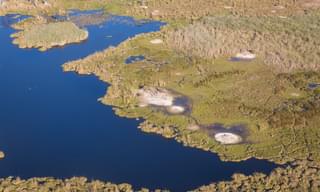
If you’re want to go gorilla trekking, then you are going to want to visit Rwanda or Uganda. The actual gorilla trekking experience is quite similar in both countries; however Rwanda tends to be a more expensive option out of the two as the gorilla permits cost more and overall it has positioned itself as a more luxury destination.
Rwanda is smaller in size making access easy, however safari options beyond seeing gorillas, chimpanzee and monkeys are limited. This means that if you are looking to combine gorilla trekking with safari, you best would be to either twin Rwanda with Tanzania (you can fly direct from the capital to the Serengeti), or to visit Uganda which has more extensive options than Rwanda.
Whilst not close to the beach, Rwanda does have Lake Kivu, one of Africa’s safest lakes – perfect for swimming or kayaking, with small islands you can stay on. For those focused on gorilla trekking followed by a few days’ relaxation, this can be a good option.
Uganda on the other hand is home to Queen Elizabeth National Park which is famed for its tree climbing lions, as well as lots of elephants. Whilst you can sometimes see leopard, it does not contain giraffe, zebra, or rhino, which is why many hunting a safari experience twin Rwanda with Tanzania.
When to go: January to February and June to August are the two dry seasons for both Uganda and Rwanda, and offer the best time to visit to see wildlife and enjoy trekking without the rain.
Rwanda Pros: Gorilla trekking, good quality accommodation, small to get around, close to Tanzania for safari, relax at Lake Kivu.
Rwanda Cons: Premium pricing, flight to Serengeti in Tanzania for safari.
Uganda Pros: Gorilla trekking, more affordable, safari with tree climbing lions.
Uganda Cons: Longer drives to reach the gorillas, overall, more basic accommodation. Whilst greater safari available than Rwanda, the volume of animals does not compare to other pure safari destinations.
A country famed for its vast landscapes and breath-taking sand-dunes, Namibia is a popular choice for first-time visitors to Africa, but it doesn’t hold it’s own as a safari destination.
Namibia has one main safari park, Etosha National Park, which offers the chance to see desert adapted elephants and rhino amongst other animals, but the quantity and variety of wildlife will not be equal to other countries on this list.
However, if you are looking to experience a little safari, but you don’t want it to be the main part of your trip, then Namibia could be the perfect entry point for you.
Namibia has some of the most stunning and unusual landscapes in Africa, you can self-drive across Namibia so that you take your holiday at your own pace and it offers a whole host of activities from climbing sand dunes and quad biking to fantastic hiking trails, but don’t choose Namibia for the safari alone, see this as an added extra and bonus to the destination!
When to go: Namibia is great to visit from April through to November with limited rain, although it is starting to heat up in October, this is considered the best month for game viewing as the vegetation is fading making it easier to spot game.
Pros: Stunning scenery, interesting desert adapted animals, safari as an add on to lots of other activities, self-drive allows you to go at your own place.
Cons: Don’t go just for the safari, accommodation tends to get booked up so need to book far in advance.
Whilst each country has their merits, here is our quick summary for you to help you decide.
Looking for a classic safari experience, great game viewing and the ability to combine with some beach time? Kenya or Tanzania.
Want try a safari but do not want it to be the main part of your holiday? South Africa or Namibia.
Hoping for a more private, exclusive experience, with great game viewing that is a pure safari experience? Botswana
If you’ve a particular activity in mind such as wanting to see the gorillas then you are going to want Rwanda or Uganda, if you want to focus on a walking safari then Zambia is your go too or if you are hoping to see the lemurs then Madagascar is going to be top of your list.
For more inspiration read our family safari guide, our best African honeymoon ideas or our 26 favourite safari holidays.
Each country offers a wonderful and unique safari experience, so the best way to decide which is right for your first safari, is to talk to one of our experts. Call 01768 603 715 today or enquire here.
and start planning your tailor-made holiday

Africa Expert